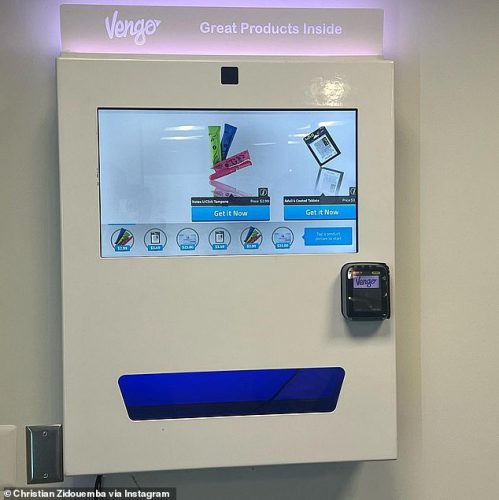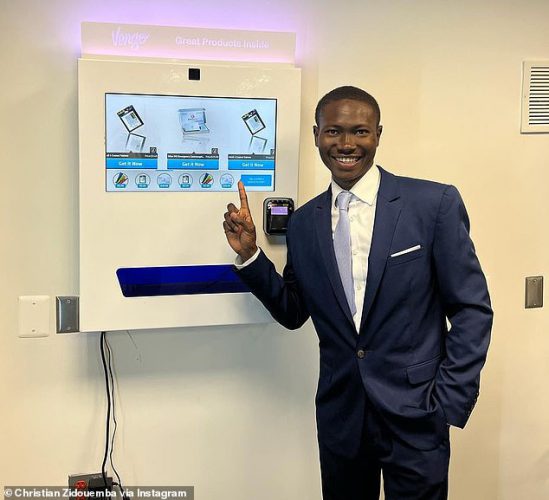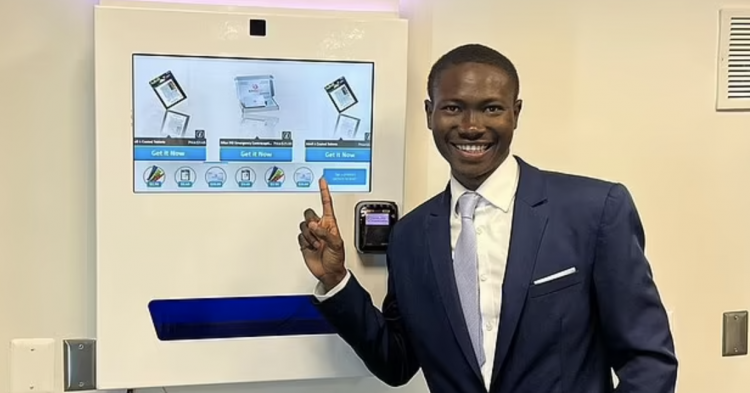Students at George Washington University in the country’s capital of Washington, D.C. now get easy access to the morning-after pill if they have unprotected sex and want to protect themselves from unwanted pregnancy. After the conservative United States Supreme Court struck down the Roe v Wade decision that legalized abortion for women during the first weeks of pregnancy, George Washington University wanted to install an easy way to help female students protect themselves from an unwanted pregnancy if they had unprotected sex or were assaulted by a man who left his semen inside of the female victim.
The university is now making headlines after they installed morning-after pill vending machines on campus. The vending machines were installed following a student-led campaign that was made in response to the tearing down of legalized abortion following nearly fifty years of protection from Roe v Wade.

The morning-after pill vending machine is located in the basement of the George Washington University student center to help protect women who made need the pill. The location of the vending machine offers privacy and a discreet way for women to get access to the pill which helps prevent a pregnancy in the first place.
The morning-after pill is not an abortion. It is an emergency contraceptive that helps prevent pregnancies from occurring, so a woman does not need to seek the services of a medical professional for an abortion at a later date if they do become pregnant following unprotected sex.
The use of the morning-after pill is pretty common. According to data from the Centers for Disease Control and Prevention, about twenty-five percent of women between the ages of twenty-two and forty-nine have used the emergency contraceptive to prevent pregnancy following unprotected sexual intercourse.

The student campaign wanted to increase access to the morning-after pill. Although the school’s on-site pharmacy did offer the pill to women, the location had limited hours of operation, which prevented some women from getting their hands on the emergency contraceptive in a timely manner, which increased the effectiveness of the drug.
The installation of the controversial vending machines was spearheaded by GWU’s Student Association. These students wanted students to have increased access to the pill in case they needed the emergency contraceptive. The price point is also lower than the fifty-dollar price tag offered at off-campus stores. Visiting one of these stores also requires the student to have access to transportation, which adds another barrier to pregnancy protection.
Students Neharika Rao and Aiza Saeed started a petition to increase access to the morning-after pill at GWU.
After the vending machine was installed, student body president Christian Zidouemba thanked Rao and Saeed on Instagram.
“While this is a step forward to ensuring our campus has reproductive health products, I acknowledge that a lot of work still needs to be done,” Christian said. “That’s why we will work with GW administration to expand vending machines across our university as well as reduce the cost… Thank You @aizasaeed_ & @neharikaarao, for your leadership, taking on the project, and making it a reality.”
